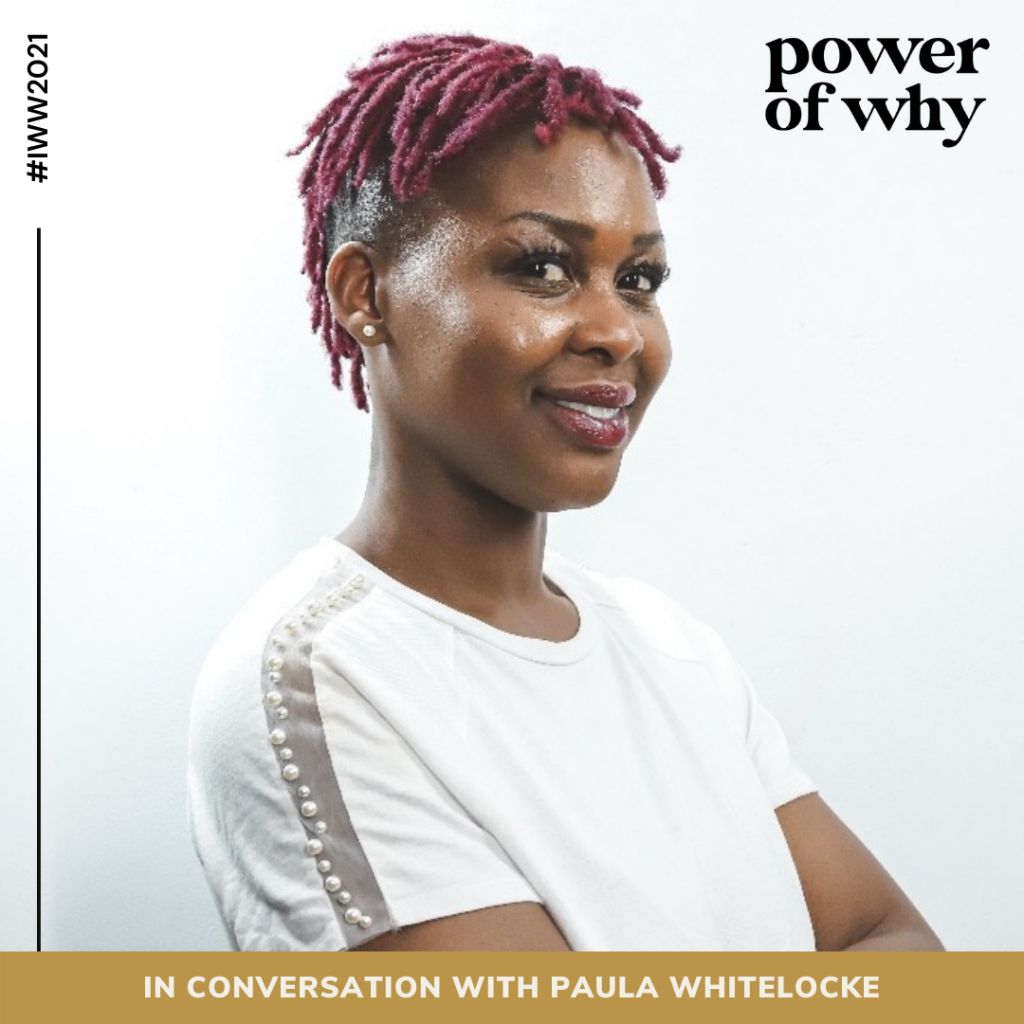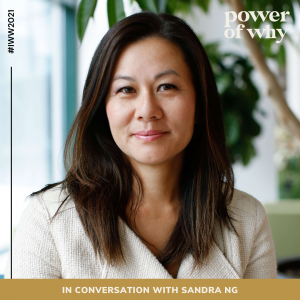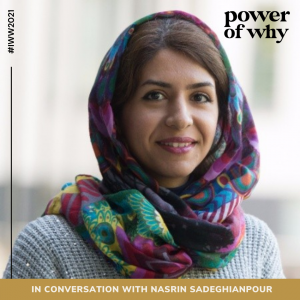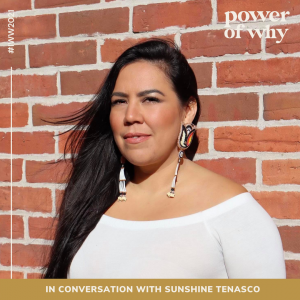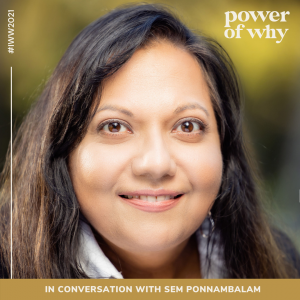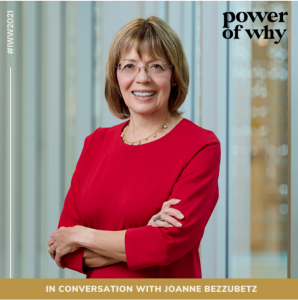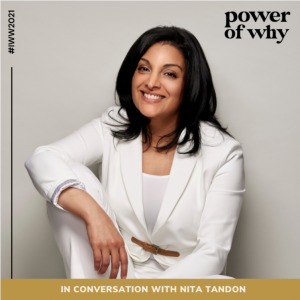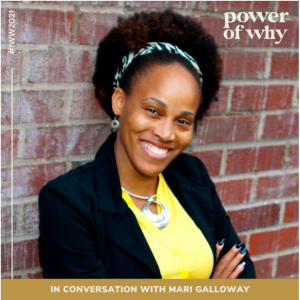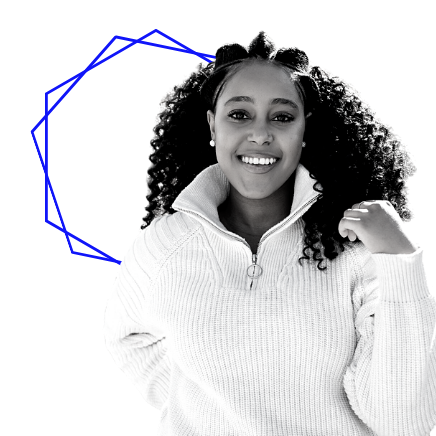This episode is for you if:
- You have a hard time setting boundaries because you worry about letting others down
- You want to practice self-care without rushing through the motions
- You feel like you don’t have enough time/money/talent/skill to follow your dreams (aka: you’re trapped in a scarcity mindset)
- You’re a creative whose self-doubt has stopped you from creating
Looking for something specific?
[9:25] Opening a salon in Ottawa at 21-years-old
[11:30] Going from surviving to thriving
[13:00] Taking your business online with Invest Ottawa and Digital Main St.
[24:48] Creating a routine that works for your lifestyle
[34:30] Setting boundaries
[37:00] Shifting to a 3-day work week
[41:48] Musical interlude: Paula sings and shares where she is today
[49:53] Creating art — what energy resonates from your creation?
This episode is brought to you in collaboration with Invest Ottawa. We teamed up to produce this special series in celebration of International Women’s Week, and the women leading in Ottawa. Visit investottawa.ca/iww to learn more.
Psst — Paula shared some great resources to help you build your business and practice self-care with Black-owned Canadian businesses. Check them out below, with links you can access right away.
Naomi: Tell us about your origin story.
Paula: I was born and raised in Ottawa, and I have Caribbean parents. From a young age, I was playing with hair, scarfs and cutting my Barbie’s hair. I was also invested in music: from choirs to vocal class and competitions all throughout high school – I even auditioned for Canadian Idol when I was 16.
My dad is an artist, he paints. My sister’s talent is also with her hands: she knits and loves crocheting. I have taken on my mom’s cooking. I have both parents running through me.
Naomi: Growing up, you had style, art, and creativity all around you. How did you get into hairstyling as a profession?
Paula: My parents supported my creativity. At 13, I was doing people’s hair in my parents’ basement, charging $10, or for food. I started working in a salon when I was 15. When I finished hair school, and I was out of high school, I studied Small to Medium Enterprise Management.
When I went for my hair styling license, I had already compiled the hours I needed. It allowed me to open my salon early, at 21, when I didn’t know anything about management or finances. I’m still learning – as an educator it’s important that I’m on top of my game.
Naomi: What was it like starting your business in Ottawa at 21 years old?
Paula: What people don’t realize about the beauty industry is that we are six figure earners. I started my business with a line of credit that my parents cosigned for me. I talk a lot about money management, because it took me a long time to understand it. There’s so much that I know now that I can equip my children with, when it comes to building wealth and passing it down to generations.
Our parents were in survival mode. They had to take care of the family and provide for us, which I have so much gratitude for. I do my best to remember that we are in thriving mode. We can take what they have given us and catapult it to levels we can’t even imagine. I know and hold faith that we are still able to find abundance.
Naomi: Tell us about your focus on curly hair in Ottawa, and how you built a brand in this space.
Paula: I was working with a business coach named Angela Sutcliffe who helped me hone in on my niche. I didn’t realize that I love curls so much, or that there was such a need for people who have curly, kinky, and wavy hair types.
I love that our clients include little ones and women that are well in their 60s and 70s who have never learned about their curls. When I worked at other salons and somebody Black walked in, they’d go “let’s ask Paula what she can do,” – well, why don’t you learn?
During the first lockdown, I was thinking about creating this platform for the Academy, and I would not have given myself the time if it wasn’t forced upon us. I was burnt out and overwhelmed, sometimes doing two week stretches with no days off. The lockdown helped me realize what really mattered.
Saturdays are like Tuesday in the salon industry, but now on Saturdays I’m with my family. I by no means want to thank the lockdown. It has affected a lot of people differently. But I want to sit in gratitude for being able to take that time and turn it into what I’ve been able to build with the Academy. It’s also important to have residual income, because I can’t comfortably depend on behind-the-chair income anymore. Look how quickly it was taken away.
Naomi: What have you been proud of in launching Curls Understood and taking it fully online?
Paula: My last class was with 30 stylists. They didn’t know where to find information on curly hair care in Canada, and now we’re that resource for them. I just shared the class I’m hosting tomorrow for parents and children, and people reached out asking if it’s full, and if I can remove the classroom cap. It’s a free class because I’m in a position to give back.
Naomi: You’ve mentioned different curl types, how in-depth do you go in these courses?
Paula: We want to know what you’re using, what your lifestyle is and what you’re willing to do. We simplify things. It’s about creating a routine that works for your lifestyle and encouraging people to enjoy the process. When I relax my roots, that is a form of self-care and self-love. Our scalp is skin.
Growing up, we had the olive oil, egg, and mayo treatment, and we would sit outside in the backyard getting our hair treated like a little salad. Now I know it didn’t do anything, because oil and egg hold a larger molecular weight and size than our hair needs. That’s why I love working with specific product lines that have done the work for me in the lab, that have already broken down that product so it can penetrate hair.
In Ottawa, I love Frizé Frizé, my twin sister’s makeup product, and Earthtones Naturals. I love that I have Black-owned Canadian companies in my salon. I also have my own salon-branded Curly Hair Designs leave-in coconut milk conditioner. You can have a great product, but you need to know how to use it.
Naomi: What was your process to bring Curls Understood, The Academy to life?
Paula: During the lockdown I provided a four-week program for youth, and I had them come to class with their hair wet, so I could teach them how to apply product. It was beautiful. The more we guide youth the more they can love on themselves. I wasn’t taught that.
I could do that work forever, but it takes a lot of energy. That’s why I worked with Invest Ottawa’s Digital Main St. media team, and we talked about creating modules.
When I offered my first class under the Academy, I realized that I love the interaction of live sessions. It’s easy to look at what your colleagues are doing, but you have to see what works for you first.
Naomi: Can you talk about the boundaries you’ve set, and some of your wellness practices?
Paula: I was nowhere near ready, mentally, to go back to work when they told us the first lockdown would be lifted. It was an emotionally challenging time in June, and I was wary of being in spaces with new people, specifically those who are white, and who may not understand issues that ail myself and our Black community.
I was at my friend’s lake house in July when I sent an email to my clients about the salon’s price increases and new hours. I felt so much scarcity – I was used to working and not receiving value for my time. It was emotional because my clients are like family. But I knew if I wanted to sustain the business and my livelihood, I had to make these changes. After sending the email I jumped in the lake. It was a release. I’m a Scorpio – you know, water signs.
One of the emails I got back wasn’t nice, and it made me question whether I made the right choice. But when we opened after the first lockdown, we were fully booked for four weeks out with new clients. Being able to go back with a three-day work week and sustain the business proved how important my boundaries are, how important my family is.
We didn’t see our parents invest in self-care and self-compassion. And it’s never about shaming or faulting. Our parents did everything that they could. I know that I can make different decisions that are rooted from a place of abundance.
Naomi: I would be remiss if we didn’t talk about your music. What role music has played in your life? How did you step into your stage moniker, Paula C.?
Paula: [singing] Oh, I feel, I feel so free. When I sing and when I move my feet, something’s inside of me, I must release, I must release. [singing ends] I have this sense of freedom that flows in my body. I’ve chosen to seek it out over the years, so more comes my way. It’s the law of attraction: what we think, becomes.
What are we saying about ourselves? I think we need to check in as often as possible. Music allows me to check into my spiritual realm. The more we step into those feelings in our body, the easier is to know what you like or don’t like. If I ever tried to talk myself out of doing music, it wouldn’t feel good. It feels much better to create, to know that I’m going to the studio at The Real House of Ensemble downtown. We have so many creative hubs in our city.
A person I always bring up with music is Nambi. I hadn’t been writing for almost 10 years before she came around. Creativity is a practice. I used to think it was a chore to rehearse the same thing over and over again. She showed me a new realm of music in Ottawa that I didn’t know existed.
Naomi: During our last conversation, you said “music helps me connect to the inner child that always knew she loves performance, the girl who knew her words meant enough to be said out loud – it helps me connect to the shadow that told me to be scared and think twice before I be who I was placed on this earth to be.” When you hear that, what feelings come up?
Paula: I feel tears. It’s important for me to be friends with the child and be friends with the shadow, as opposed to shunning it for existing. It’s gotten me to where I am now.
When I’m making music, I want to know what you think, but it’s more important that I know how it makes me feel. If it feels good for me, then it will feel good for somebody else. But if it doesn’t feel good for me, then that energy is what’s going to resonate out of that creation.
We both know Gwen, and she always says “we are human becoming.” That means every single day, we get to wake up and open our eyes and choose, How do I want to present myself in the world today? How do I want to view the world today? Am I willing to give myself permission to operate at higher levels of power? I know I have a lifetime to go, but I’m so grateful that this is what I get to do while I’m here on earth. I don’t want to take that for granted any longer.
This episode is brought to you in collaboration with Invest Ottawa. We teamed up to produce this special series in celebration of International Women’s Week, and the women leading in Ottawa. Visit investottawa.ca/iww to learn more.








